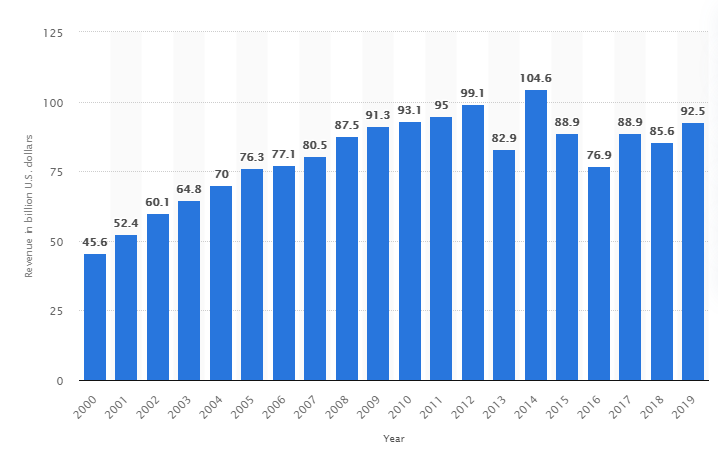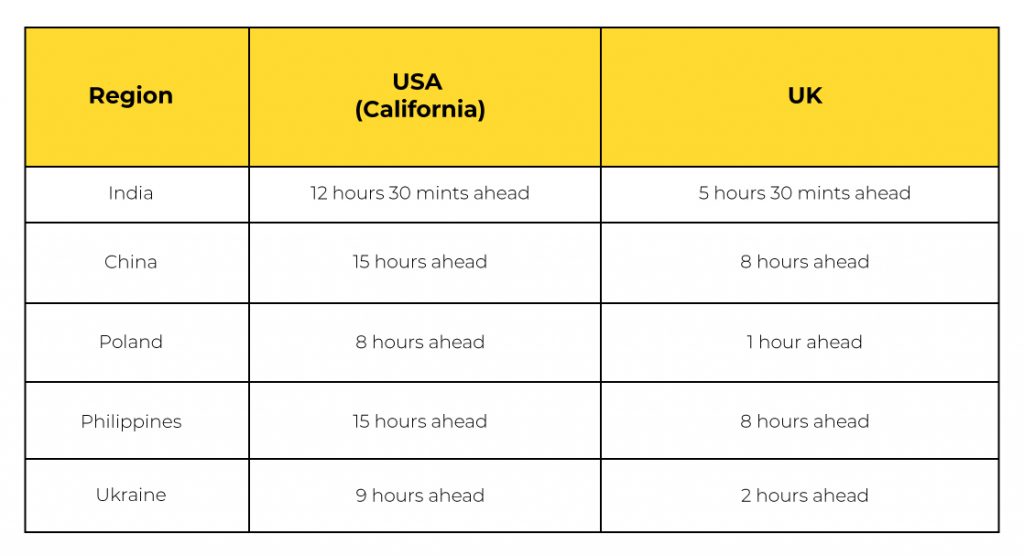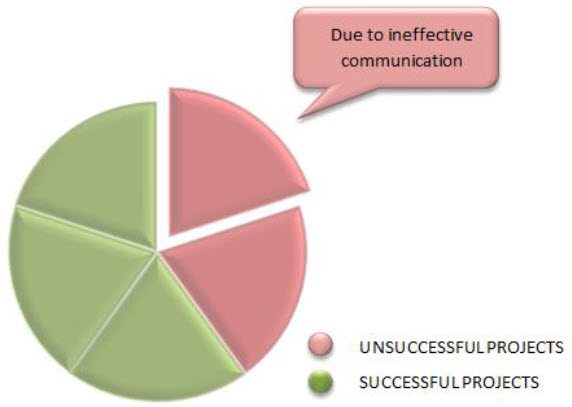7 Proven Ways to Manage Team Performance for Offshore Teams
- Kevin Oskow
- April 27, 2020
- 5 Minute Read

If there’s one word that most people would think of when asked about how a business has changed, it would be “outsourcing.”
In the last few decades, this has had a significant impact on operations. In 2019, the global market size of this activity was a staggering USD 92.5 billion.
According to a recent study:
- Over 50% of companies use third-party support teams for customer outreach.
- 78% of businesses all over the world feel positive about their outsourcing partners.
- In the United States alone, about 300,000 jobs get outsourced out of the country every year.
- 71% of financial service executives outsource or offshore some of their services.

Global market size of outsourcing activity. Source
As you must know, a large part of this is offshoring, or, moving internal operations to a third party in another country. This can be advantageous because of cost differentials as well as the availability of skills and expertise.
Many companies have reaped huge benefits of offshoring.
- For Ikea, having a single offshore software provider helped to lower the work to run the stores and led to significant cost reduction.
- Alibaba’s Jack Ma has written about how he initially outsourced web development, helping the business to take off.
- Basecamp, one of the most sought-after project management software companies, outsourced app development, and this made them more organized focused on business priorities.
Many small and medium-sized companies, too, have been quick to seize offshoring opportunities.
In the digital industry, the practice of offshoring is widely accepted. In a 2010 survey, about 15% of all firms and 40% of technology firms engaged in some offshore outsourcing activity, with about 30% offshoring digital workers. The figures have only grown since.
Once you’ve taken the decision to outsource activities, the question that naturally arises is: how do you get the best results and productivity from an offshore remote team? Or, how to manage team performance?
7 Tried & Tested Methods for Offshore Team Performance Management
1. Share Your Vision from the Start
If you are really concerned about how to motivate your team to improve performance, you should treat your remote partners as key allies who will help you meet your final goals. At the first few interactions, outline broad, long-term objectives and needs. That is key to smooth onboarding.
Once the offshore team is clear about the overall direction and the role they play within it, they will be even more motivated and focused. Your offshore team management success is defined early with the way you plan your on-boarding process.
Of course, there will always be a need to discuss specific, day-to-day tasks. But painting the big picture is an effective first step.
2. Define Expectations and Results
How will one analyze the offshore team and manage team performance? What steps need to be taken for progress? What should be done if course-correction is required?
These are important questions to raise in any discussion with an offshore team. You should be clear about what exactly is expected, and the yardstick for measurement.
In fact, a recent survey showed that for software development projects that missed deadlines or were over-budget, the primary reasons were:
- Lack of user input.
- Incomplete requirements and specifications.
- Changing needs and requirements.
This can be avoided if benchmarks and measuring standards are defined in advance. Then, at any point in the progress of a project, you can easily survey the current status.
3. Handle Time Zone Differences
One of the questions that you must have asked is: how to handle offshore team management while it works in a different time zone? This can seem like a challenge. However, with a few actionable steps, it can become an opportunity to be seized.
First of all, there will be working hours that overlap. These should be profitably used for face-to-face communication via videoconferencing, or even phone calls.

With shared calendars, specific requirements, and prioritized tasks, you can easily overcome the time difference. Look at it this way: once you’ve communicated feedback, you’re actually getting the advantage of work that’s progressing around the clock, without a pause.
4. Use Effective Communication Tools
If there’s one thing the Internet has given us, it’s the ability to connect in different ways and at different levels. Such communication is a prerequisite if you wish to manage team performance effectively.
One report says that, on average, one out of five projects fail due to lack of communication between the project manager, team members, and stakeholders.

To avoid this, here are some remote team communication tools and their uses.
- There is, of course, e-mail. This is best used to sum up the proceedings of minutes and for action points. It’s also perfect for official communications and schedules.
- If you keep a live chat window always open, you can seek clarifications, get updates, and ask and answer short questions.
- Videoconferencing is great for group meetings, for getting to know the team better, and for discussions that involve all members. It’s best if such meetings were held at fixed times so that everyone is prepared.
- Some popular branded tools that have the above and more features are Slack, HipChat, Zoom, and Skype. Do check with your team what the most effective one would be.
5. Share Detailed Feedback and Actionable Points
We’ve already touched upon the necessity of outlining steps to progress at the very start. As work continues, it’s important that the feedback not be vague and unstructured.
In the field of education, it’s said that the best feedback is:
- Targeted
- Specific
- Timely
The feedback on the work of offshore team members should be targeted at certain actionable issues, and not general. It should be specific to a concern or a point of action. Such two-way feedback based on mutual trust will go a long way in building a great relationship and boosting team performance. And it should be on time so that the team can act on it without delaying deadlines.
Of course, the concerns of the team should also be heard. Resolving concerns is an unavoidable responsibility when it comes to offshore team management.
6. Create Project Milestones to Manage Team Performance
Breaking the overall task down into small chunks and reviewing these pieces periodically helps with team performance management and is a great way to ensure that projects are on track.
This is a form of continuous development that allows for frequent reviews. It will contain smaller deliverables and give you a chance to revise the project in stages. Progress thus occurs in parts, each of which is well-defined and with its own deadline.
In this way, with regular feedback and manageable revisions, you can watch the project grow to completion step by step.
Also Read: Top 5 Things To Consider Before You Hire Offshore Developers
7. Treat the Team as Partners
It can happen that offshore teams are seen as something separate from the company. They are looked on as vendors who are tasked with specific issues.
However, a much better way of working is to see the offshore agency as integral to business efforts. Everyone works towards the same goal, and success is common to all.
With this unified culture of belonging, motivation levels are higher, and productivity goes up. There is mutual respect for each other’s point of view, and this leads to a friction-free working environment.
The Uplers Advantage
At Uplers, we have the experience of working across time zones, across sectors, and across business models. When it comes to offshore operations, we have skilled digital teams ready and waiting to deliver great results.
If you’d like to know more about how you can use our expertise to your advantage, do get in touch today.

Thank you for submitting the details!
We will keep your information safe. Feel free to contact us with any questions at hello@uplers.com
Please check your email for next steps shared by Robert.


















